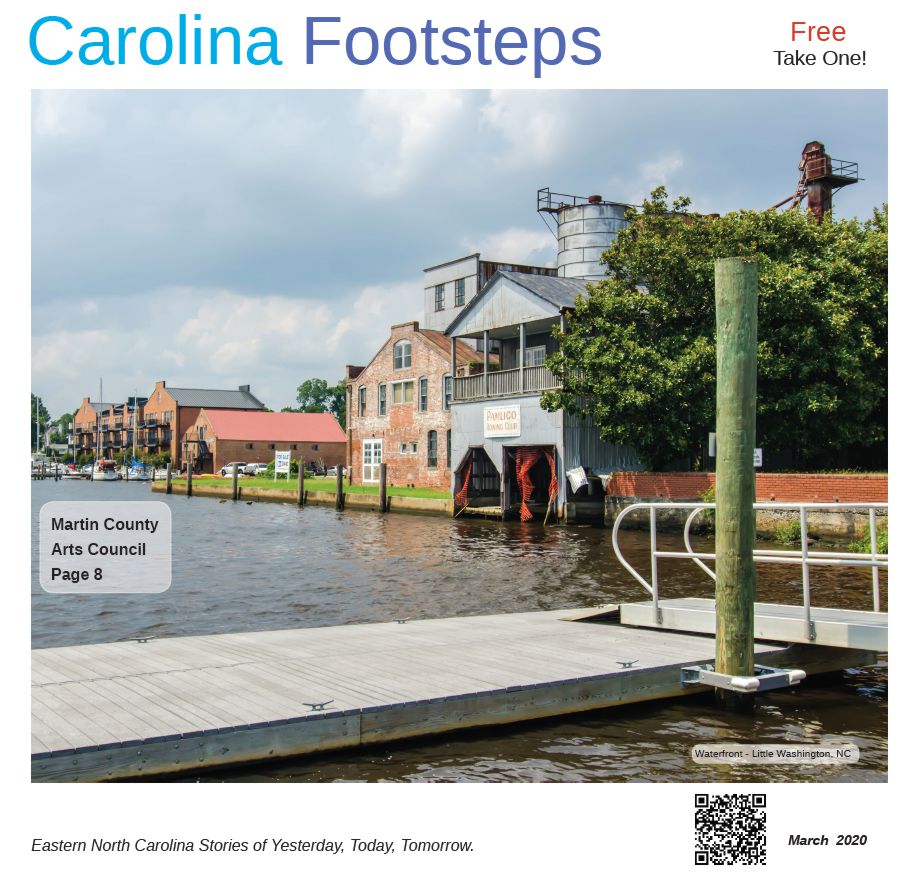Another view: A tight cadre controls Tillett’s future
By Submitted Story on January 9, 2016
Nags Head Attorney Neil W. Scarborough submitted the following article for publication in The Outer Banks Voice.
This is the second part of a three-part article. The first two examine the story involving Superior Court Judge Jerry Tillett’s son and the events afterward and introduces the people responsible for publicizing it and their likely reasons.The third part examines the State Bar’s conduct in more detail and reveals the injustice they’re not only perpetrating but are trying to hide.
All the court documents and other materials related to this case are available for review at www.scarboroughlawfirm.com.
The Players
Most readers know that “the story” is the basis for a complaint against Superior Court Judge Jerry Tillett with the N.C. State Bar, which was covered in Part 1 and linked below.
The North Carolina State Bar isn’t merely the body of practicing lawyers in the State; it is the State agency that governs those of us fortunate enough to practice law in North Carolina, or in this case, is attempting to govern those of us unfortunate enough to be Judge Jerry Tillett.
Getting to know some members of the N.C. Bar and their allies will shed light on who’s behind the war being waged against Tillett and why they might be waging it.
The latest complaint against Tillett is, in fact, the second one that’s been filed against him on the basis of the same facts. Both complaints, however, were initiated by Steven D. Michael, a partner at Sharp, Michael, Graham & Baker in Kitty Hawk.
Among other things, Michael is the current attorney for the town of Kill Devil Hills, a job he obtained following the ouster of Dan Merrell, who, as you likely know, has also been in the Bar’s crosshairs. [6]
Michael is the past president of the State Bar. He occupied that post at the time that he, while also serving as attorney for KDH, filed the first complaint against Tillett with the N.C. Judicial Standards Commission.
He’s also the chair of the Bar’s Disciplinary Hearing Commission, giving him authority to select the members who will decide the complaint against Tillett. Michael’s successor as State Bar president is Ronald G. Baker.
Baker recently moved to the Outer Banks and is the newest partner at Michael’s Kitty Hawk firm. Baker’s ties to the State Bar run even deeper than Michael’s. In addition to serving as State Bar President in 2011, Baker is a current State Bar officer and serves on no fewer than five commissions. [7]
Serving with Baker on the State Bar’s Executive Commission is another local attorney, C. Everett Thompson, who also serves on three other Bar commissions. [8]
Thompson is also the State Bar Councilor for the 1st Judicial District — this one. His immediate predecessor at that post was Donald C. Prentiss, yet another local attorney.
Prentiss, who practices with Hornthal, Riley, Ellis & Maland in Elizabeth City, also serves with Steve Michael as one of 12 members of the State Bar’s Disciplinary Hearing Commission, the very commission deciding the complaint against Judge Tillett.
Another member of Prentiss’s firm, Ben Gallop, serves on the State Bar’s Ethics Commission. And the founding member and senior partner of the Hornthal firm, L.P. Hornthal, Jr., is one of only 13 members of the North Carolina Judicial Standards Commission, the group that Michael filed his first complaint against Judge Tillett with back in 2011.
For those counting, that’s six local attorneys, including two past State Bar presidents, one of whom filed both complaints against Judge Tillett.
Five of the six attorneys hold high-level posts with the N.C. State Bar, two serve on the Disciplinary Hearing Commission, and one is on the 13-member Judicial Standards Commission.[9] If something is starting to smell fishy, it’s probably for good reason.
So there’s the “who”; but why might they be doing it? Finding the answer to that question is a two-step exercise, the first of which involves a brief history lesson.
The Game
Judge John Herbert W. Small was a legal fixture in eastern North Carolina for over half a century. [10] He was admitted to the North Carolina bar in 1949 and practiced in Elizabeth City for many years before being elected to the bench.
He went on to become the Senior Resident Superior Court Judge for the 1st Judicial District, the seat currently occupied by Tillett.
In 1991, after 17 years on the Superior Court bench and only a few months before his term ended, Small retired. And guess who was appointed to fill his seat through the end of term?
That’s right, Steve Michael.
In the election for Small’s seat several months later, Tillett backed Michael’s opponent, Richard “Dick” Parker, who defeated Michael handily. Parker went on to serve on the Superior Court bench until retiring in 2009.
Up until Small retired, Michael was a card-carrying Democrat. Then as now, judicial appointments must be confirmed by the governor, and the governor at the time was Jim Martin, a Republican. So Michael switched parties, andthe newly-minted Republican got the appointment over Democrat Dick Parker.
Of course, switching political parties to win an election happens often enough. Still, for most people changing parties is more significant than, say, changing one’s brand of toothpaste.
The point is this: Michael switched parties to secure his appointment, which shows that he had more than a passing interest in becoming a Superior Court judge.
And running for political office is much more than a hobby — it takes hard work, dedication and spending a lot of one’s hard-earned money. Michael no doubt put all of that into his campaign — only to lose. He not only lost; he lost to a Democrat after he had switched parties.
For years since his defeat by Parker, he put his efforts into climbing the ladder of the N.C. State Bar until, in 2010, he assumed its highest post, President.
Sound like a cheap substitute for a judgeship? Not if you understand the power the State Bar has come to wield. The State Bar has become one of the most powerful agencies in North Carolina government.
To grasp that, one only need consider the war the Bar has been able to wage against Tillett and consider the following questions: In what government would the practicing bar be permitted to discipline sitting judges?
In what government could a sitting judge be disciplined for the same conduct twice?
These questions also serve to highlight the extent of the injustice being perpetrated against Judge Tillett, which is the next topic.
Footnotes:
[6] Like Judge Tillett, Merrell has faced not one but two complaints against him with the State Bar, at least the second of which was also initiated by Michael.
[7] Appointments Advisory, Finance and Audit, Issues, Nominating, and the Executive Commission.
[8] Bar’s Administrative, Distinguished Service, and Grievance Commissions.
[9] Reading the list of State Bar officers, particularly past presidents, is like reading a family tree — most are part of a relatively small group who either went to law school together or are friends.
[10] The federal courthouse in Elizabeth City is named for him.
Another view: A tight cadre controls Tillett’s future
![Another view: A tight cadre controls Tillett’s future]() Reviewed by Albemarle Tradewinds
on
12:18:00 PM
Rating:
Reviewed by Albemarle Tradewinds
on
12:18:00 PM
Rating:






No comments: